afterLoad (456.41KB) (1.9ms)
afterInitialise (1.28MB) (54.18ms)
afterRoute (873.69KB) (25.36ms)
beforeRenderComponent com_tags (21.05KB) (325μs)
afterRenderComponent com_tags (1.9MB) (200ms)
afterDispatch (65.02KB) (10.63ms)
beforeRenderRawModule mod_articles_category (READ MORE...) (372.12KB) (33.24ms)
Before Access::preloadComponents (all components) (56.7KB) (2.34ms)
After Access::preloadComponents (all components) (103.05KB) (8.46ms)
Before Access::getAssetRules (id:8 name:com_content) (840B) (18μs)
After Access::getAssetRules (id:8 name:com_content) (7.05KB) (50μs)
afterRenderRawModule mod_articles_category (READ MORE...) (6.33KB) (86.32ms)
beforeRenderRawModule mod_tags_popular (Search) (4.81KB) (29μs)
afterRenderRawModule mod_tags_popular (Search) (1.98KB) (111ms)
beforeRenderRawModule mod_custom (Remember to download Heart Healthy Seniors) (816B) (28μs)
afterRenderRawModule mod_custom (Remember to download Heart Healthy Seniors) (4.86KB) (2.57ms)
beforeRenderRawModule mod_custom (Get additionel and more detailed knowledge ) (752B) (28μs)
afterRenderRawModule mod_custom (Get additionel and more detailed knowledge ) (1.67KB) (41μs)
beforeRenderRawModule mod_custom (BOOST YOUR IMMUNE DEFENSE) (608B) (5ms)
afterRenderRawModule mod_custom (BOOST YOUR IMMUNE DEFENSE) (928B) (58μs)
beforeRenderRawModule mod_custom (Are you taking supplements) (736B) (14μs)
afterRenderRawModule mod_custom (Are you taking supplements) (1.03KB) (23μs)
beforeRenderRawModule mod_custom (Antiaging) (720B) (9μs)
afterRenderRawModule mod_custom (Antiaging) (1.02KB) (48μs)
beforeRenderRawModule mod_custom (Exercise) (720B) (10μs)
afterRenderRawModule mod_custom (Exercise) (1.02KB) (19μs)
beforeRenderRawModule mod_custom (Check this before you buy a Q10 product) (752B) (8μs)
afterRenderRawModule mod_custom (Check this before you buy a Q10 product) (944B) (18μs)
beforeRenderRawModule mod_custom (Chronic fatigue tied Alan to his bed but Q10 capsules saved him:) (245.53KB) (31.52ms)
afterRenderRawModule mod_custom (Chronic fatigue tied Alan to his bed but Q10 capsules saved him:) (960B) (49μs)
beforeRenderModule mod_custom (Chronic fatigue tied Alan to his bed but Q10 capsules saved him:) (768B) (4μs)
afterRenderModule mod_custom (Chronic fatigue tied Alan to his bed but Q10 capsules saved him:) (1.3KB) (60μs)
beforeRenderRawModule mod_custom (Cholesterol-lowering without side effects:) (368B) (12μs)
afterRenderRawModule mod_custom (Cholesterol-lowering without side effects:) (2.19KB) (23μs)
beforeRenderModule mod_custom (Cholesterol-lowering without side effects:) (752B) (2μs)
afterRenderModule mod_custom (Cholesterol-lowering without side effects:) (1.28KB) (26μs)
beforeRenderModule mod_articles_category (READ MORE...) (21.43KB) (8.9ms)
afterRenderModule mod_articles_category (READ MORE...) (1.25KB) (53μs)
beforeRenderModule mod_tags_popular (Search) (5.17KB) (13μs)
afterRenderModule mod_tags_popular (Search) (1.27KB) (24μs)
beforeRenderModule mod_custom (Remember to download Heart Healthy Seniors) (1.17KB) (10μs)
afterRenderModule mod_custom (Remember to download Heart Healthy Seniors) (1.3KB) (20μs)
beforeRenderModule mod_custom (Get additionel and more detailed knowledge ) (368B) (9μs)
afterRenderModule mod_custom (Get additionel and more detailed knowledge ) (1.3KB) (19μs)
beforeRenderModule mod_custom (BOOST YOUR IMMUNE DEFENSE) (224B) (8μs)
afterRenderModule mod_custom (BOOST YOUR IMMUNE DEFENSE) (1.28KB) (18μs)
beforeRenderModule mod_custom (Are you taking supplements) (352B) (8μs)
afterRenderModule mod_custom (Are you taking supplements) (1.28KB) (18μs)
beforeRenderModule mod_custom (Antiaging) (336B) (8μs)
afterRenderModule mod_custom (Antiaging) (1.27KB) (18μs)
beforeRenderModule mod_custom (Exercise) (336B) (8μs)
afterRenderModule mod_custom (Exercise) (1.25KB) (18μs)
beforeRenderModule mod_custom (Check this before you buy a Q10 product) (352B) (8μs)
afterRenderModule mod_custom (Check this before you buy a Q10 product) (1.28KB) (18μs)
beforeRenderRawModule mod_menu (Main menu-US) (20.94KB) (518μs)
afterRenderRawModule mod_menu (Main menu-US) (216.66KB) (26.13ms)
beforeRenderModule mod_menu (Main menu-US) (720B) (5μs)
afterRenderModule mod_menu (Main menu-US) (4.36KB) (57μs)
beforeRenderRawModule mod_languages (Sprogskift) (3.44KB) (19μs)
afterRenderRawModule mod_languages (Sprogskift) (32.27KB) (7.29ms)
beforeRenderModule mod_languages (Sprogskift) (720B) (5μs)
afterRenderModule mod_languages (Sprogskift) (5.31KB) (20μs)
beforeRenderRawModule mod_finder () (6.34KB) (10μs)
afterRenderRawModule mod_finder () (150.16KB) (18.23ms)
beforeRenderModule mod_finder () (704B) (6μs)
afterRenderModule mod_finder () (5.79KB) (36μs)
beforeRenderRawModule mod_custom () (6.62KB) (7.63ms)
afterRenderRawModule mod_custom () (22.66KB) (936μs)
beforeRenderModule mod_custom () (704B) (6μs)
afterRenderModule mod_custom () (1.23KB) (46μs)
beforeRenderRawModule mod_menu (Main menu-US) (5.07KB) (106μs)
afterRenderRawModule mod_menu (Main menu-US) (5.8KB) (614μs)
beforeRenderModule mod_menu (Main menu-US) (720B) (3μs)
afterRenderModule mod_menu (Main menu-US) (1.25KB) (37μs)
beforeRenderRawModule mod_languages (Sprogskift Mobil) (912B) (14μs)
afterRenderRawModule mod_languages (Sprogskift Mobil) (3.89KB) (16.72ms)
beforeRenderModule mod_languages (Sprogskift Mobil) (720B) (5μs)
afterRenderModule mod_languages (Sprogskift Mobil) (1.27KB) (33μs)
beforeRenderRawModule mod_finder () (2.3KB) (11μs)
afterRenderRawModule mod_finder () (6.29KB) (541μs)
beforeRenderModule mod_finder () (704B) (4μs)
afterRenderModule mod_finder () (1.23KB) (3.98ms)
beforeRenderRawModule mod_custom () (8.66KB) (231μs)
afterRenderRawModule mod_custom () (904B) (165μs)
beforeRenderModule mod_custom () (704B) (3μs)
afterRenderModule mod_custom () (2.43KB) (29μs)
beforeRenderRawModule mod_custom () (688B) (79μs)
afterRenderRawModule mod_custom () (896B) (92μs)
beforeRenderModule mod_custom () (704B) (3μs)
afterRenderModule mod_custom () (2.71KB) (20μs)
afterRender (362.87KB) (43.07ms)
| 1 x afterRenderComponent com_tags (1.9MB) (28.19%) | 200.46ms |
| 1 x afterRenderRawModule mod_tags_popular (Search) (1.98KB) (15.59%) | 110.86ms |
| 1 x afterRenderRawModule mod_articles_category (READ MORE...) (6.33KB) (12.14%) | 86.32ms |
| 1 x afterInitialise (1.28MB) (7.62%) | 54.18ms |
| 1 x afterRender (362.87KB) (6.06%) | 43.07ms |
| 1 x beforeRenderRawModule mod_articles_category (READ MORE...) (372.12KB) (4.67%) | 33.24ms |
| 1 x beforeRenderRawModule mod_custom (Chronic fatigue tied Alan to his bed but Q10 capsules saved him:) (245.53KB) (4.43%) | 31.52ms |
| 1 x afterRenderRawModule mod_menu (Main menu-US) (216.66KB) (3.67%) | 26.13ms |
| 1 x afterRoute (873.69KB) (3.57%) | 25.36ms |
| 1 x afterRenderRawModule mod_finder () (150.16KB) (2.56%) | 18.23ms |
| 1 x afterRenderRawModule mod_languages (Sprogskift Mobil) (3.89KB) (2.35%) | 16.72ms |
| 1 x afterDispatch (65.02KB) (1.49%) | 10.63ms |
| 1 x beforeRenderModule mod_articles_category (READ MORE...) (21.43KB) (1.25%) | 8.90ms |
| 1 x After Access::preloadComponents (all components) (103.05KB) (1.19%) | 8.46ms |
| 1 x beforeRenderRawModule mod_custom () (6.62KB) (1.07%) | 7.63ms |
| 1 x afterRenderRawModule mod_languages (Sprogskift) (32.27KB) (1.03%) | 7.29ms |
| 1 x beforeRenderRawModule mod_custom (BOOST YOUR IMMUNE DEFENSE) (608B) (0.7%) | 5.00ms |
| 1 x afterRenderModule mod_finder () (1.23KB) (0.56%) | 3.98ms |
| 1 x afterRenderRawModule mod_custom (Remember to download Heart Healthy Seniors) (4.86KB) (0.36%) | 2.57ms |
| 1 x Before Access::preloadComponents (all components) (56.7KB) (0.33%) | 2.34ms |
| 1 x afterLoad (456.41KB) (0.27%) | 1.90ms |
| 1 x afterRenderRawModule mod_custom () (22.66KB) (0.13%) | 936μs |
| 1 x afterRenderRawModule mod_menu (Main menu-US) (5.8KB) (0.09%) | 614μs |
| 1 x afterRenderRawModule mod_finder () (6.29KB) (0.08%) | 541μs |
| 1 x beforeRenderRawModule mod_menu (Main menu-US) (20.94KB) (0.07%) | 518μs |
| 1 x beforeRenderComponent com_tags (21.05KB) (0.05%) | 325μs |
| 1 x beforeRenderRawModule mod_custom () (8.66KB) (0.03%) | 231μs |
| 1 x afterRenderRawModule mod_custom () (904B) (0.02%) | 165μs |
| 1 x beforeRenderRawModule mod_menu (Main menu-US) (5.07KB) (0.01%) | 106μs |
| 1 x afterRenderRawModule mod_custom () (896B) (0.01%) | 92μs |
| 1 x beforeRenderRawModule mod_custom () (688B) (0.01%) | 79μs |
| 1 x afterRenderModule mod_custom (Chronic fatigue tied Alan to his bed but Q10 capsules saved him:) (1.3KB) (0.01%) | 60μs |
| 1 x afterRenderRawModule mod_custom (BOOST YOUR IMMUNE DEFENSE) (928B) (0.01%) | 58μs |
| 1 x afterRenderModule mod_menu (Main menu-US) (4.36KB) (0.01%) | 57μs |
| 1 x afterRenderModule mod_articles_category (READ MORE...) (1.25KB) (0.01%) | 53μs |
| 1 x After Access::getAssetRules (id:8 name:com_content) (7.05KB) (0.01%) | 50μs |
| 1 x afterRenderRawModule mod_custom (Chronic fatigue tied Alan to his bed but Q10 capsules saved him:) (960B) (0.01%) | 49μs |
| 1 x afterRenderRawModule mod_custom (Antiaging) (1.02KB) (0.01%) | 48μs |
| 1 x afterRenderModule mod_custom () (1.23KB) (0.01%) | 46μs |
| 1 x afterRenderRawModule mod_custom (Get additionel and more detailed knowledge ) (1.67KB) (0.01%) | 41μs |
| 1 x afterRenderModule mod_menu (Main menu-US) (1.25KB) (0.01%) | 37μs |
| 1 x afterRenderModule mod_finder () (5.79KB) (0.01%) | 36μs |
| 1 x afterRenderModule mod_languages (Sprogskift Mobil) (1.27KB) (0%) | 33μs |
| 1 x afterRenderModule mod_custom () (2.43KB) (0%) | 29μs |
| 1 x beforeRenderRawModule mod_tags_popular (Search) (4.81KB) (0%) | 29μs |
| 1 x beforeRenderRawModule mod_custom (Remember to download Heart Healthy Seniors) (816B) (0%) | 28μs |
| 1 x beforeRenderRawModule mod_custom (Get additionel and more detailed knowledge ) (752B) (0%) | 28μs |
| 1 x afterRenderModule mod_custom (Cholesterol-lowering without side effects:) (1.28KB) (0%) | 26μs |
| 1 x afterRenderModule mod_tags_popular (Search) (1.27KB) (0%) | 24μs |
| 1 x afterRenderRawModule mod_custom (Are you taking supplements) (1.03KB) (0%) | 23μs |
| 1 x afterRenderRawModule mod_custom (Cholesterol-lowering without side effects:) (2.19KB) (0%) | 23μs |
| 1 x afterRenderModule mod_custom (Remember to download Heart Healthy Seniors) (1.3KB) (0%) | 20μs |
| 1 x afterRenderModule mod_languages (Sprogskift) (5.31KB) (0%) | 20μs |
| 1 x afterRenderModule mod_custom () (2.71KB) (0%) | 20μs |
| 1 x afterRenderRawModule mod_custom (Exercise) (1.02KB) (0%) | 19μs |
| 1 x afterRenderModule mod_custom (Get additionel and more detailed knowledge ) (1.3KB) (0%) | 19μs |
| 1 x beforeRenderRawModule mod_languages (Sprogskift) (3.44KB) (0%) | 19μs |
| 1 x afterRenderModule mod_custom (Check this before you buy a Q10 product) (1.28KB) (0%) | 18μs |
| 1 x Before Access::getAssetRules (id:8 name:com_content) (840B) (0%) | 18μs |
| 1 x afterRenderRawModule mod_custom (Check this before you buy a Q10 product) (944B) (0%) | 18μs |
| 1 x afterRenderModule mod_custom (BOOST YOUR IMMUNE DEFENSE) (1.28KB) (0%) | 18μs |
| 1 x afterRenderModule mod_custom (Are you taking supplements) (1.28KB) (0%) | 18μs |
| 1 x afterRenderModule mod_custom (Antiaging) (1.27KB) (0%) | 18μs |
| 1 x afterRenderModule mod_custom (Exercise) (1.25KB) (0%) | 18μs |
| 1 x beforeRenderRawModule mod_languages (Sprogskift Mobil) (912B) (0%) | 14μs |
| 1 x beforeRenderRawModule mod_custom (Are you taking supplements) (736B) (0%) | 14μs |
| 1 x beforeRenderModule mod_tags_popular (Search) (5.17KB) (0%) | 13μs |
| 3 x beforeRenderModule mod_custom () (704B) (0%) | 12μs |
| 1 x beforeRenderRawModule mod_custom (Cholesterol-lowering without side effects:) (368B) (0%) | 12μs |
| 1 x beforeRenderRawModule mod_finder () (2.3KB) (0%) | 11μs |
| 1 x beforeRenderRawModule mod_custom (Exercise) (720B) (0%) | 10μs |
| 1 x beforeRenderModule mod_custom (Remember to download Heart Healthy Seniors) (1.17KB) (0%) | 10μs |
| 1 x beforeRenderRawModule mod_finder () (6.34KB) (0%) | 10μs |
| 2 x beforeRenderModule mod_finder () (704B) (0%) | 10μs |
| 1 x beforeRenderModule mod_custom (Get additionel and more detailed knowledge ) (368B) (0%) | 9μs |
| 1 x beforeRenderRawModule mod_custom (Antiaging) (720B) (0%) | 9μs |
| 1 x beforeRenderRawModule mod_custom (Check this before you buy a Q10 product) (752B) (0%) | 8μs |
| 1 x beforeRenderModule mod_custom (BOOST YOUR IMMUNE DEFENSE) (224B) (0%) | 8μs |
| 1 x beforeRenderModule mod_custom (Are you taking supplements) (352B) (0%) | 8μs |
| 1 x beforeRenderModule mod_custom (Antiaging) (336B) (0%) | 8μs |
| 1 x beforeRenderModule mod_custom (Exercise) (336B) (0%) | 8μs |
| 1 x beforeRenderModule mod_custom (Check this before you buy a Q10 product) (352B) (0%) | 8μs |
| 2 x beforeRenderModule mod_menu (Main menu-US) (720B) (0%) | 8μs |
| 1 x beforeRenderModule mod_languages (Sprogskift) (720B) (0%) | 5μs |
| 1 x beforeRenderModule mod_languages (Sprogskift Mobil) (720B) (0%) | 5μs |
| 1 x beforeRenderModule mod_custom (Chronic fatigue tied Alan to his bed but Q10 capsules saved him:) (768B) (0%) | 4μs |
| 1 x beforeRenderModule mod_custom (Cholesterol-lowering without side effects:) (752B) (0%) | 2μs |
 Most cells in the human body need vitamin D. The nutrient also has an important role in preventing symptoms and diseases that may occur after menopause – including osteoporosis, muscle weakness, dry mucosa, mood swings, cardiovascular disease, type 2 diabetes, and cancer. In an article that is published in Frontiers in Physiology, the authors address the widespread vitamin D deficiency that is an overlooked problem in post-menopausal women, and they suggest striving to have optimal vitamin D levels in the blood throughout life.
Most cells in the human body need vitamin D. The nutrient also has an important role in preventing symptoms and diseases that may occur after menopause – including osteoporosis, muscle weakness, dry mucosa, mood swings, cardiovascular disease, type 2 diabetes, and cancer. In an article that is published in Frontiers in Physiology, the authors address the widespread vitamin D deficiency that is an overlooked problem in post-menopausal women, and they suggest striving to have optimal vitamin D levels in the blood throughout life.







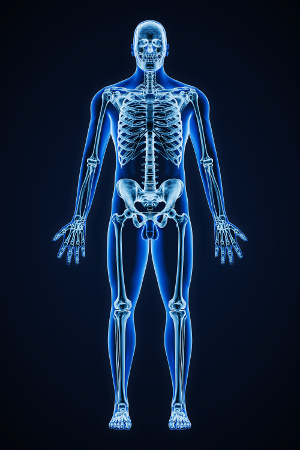
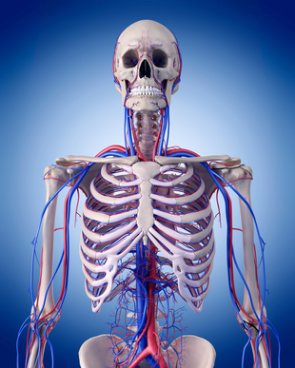 Many people take calcium supplements to prevent osteoporosis. However, research shows that high-dosage calcium supplements may harm your heart and cardiovascular system. It is important that you take calcium in the right balance with vitamin D and magnesium if you want the calcium to get absorbed properly and get all the way into your bones.
Many people take calcium supplements to prevent osteoporosis. However, research shows that high-dosage calcium supplements may harm your heart and cardiovascular system. It is important that you take calcium in the right balance with vitamin D and magnesium if you want the calcium to get absorbed properly and get all the way into your bones.
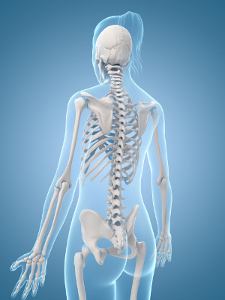 Many people avoid dairy products because they are lactose intolerant, are vegan, or for other reasons. Milk is a good source of nutrients, especially calcium, but you can easily get enough calcium from other food sources. What is more, it appears that vitamin D, vitamin K2, and the calcium/magnesium ratio is even more important than calcium alone for the structure and maintenance of strong bones. Another thing to remember is that sugar, soft drinks, stimulants, and certain types of medicine can disrupt the bone-building processes. Therefore, having strong bones is about a lot more than dairy products and calcium alone. Finally, don’t forget that daily weight-bearing exercise stimulates bone density.
Many people avoid dairy products because they are lactose intolerant, are vegan, or for other reasons. Milk is a good source of nutrients, especially calcium, but you can easily get enough calcium from other food sources. What is more, it appears that vitamin D, vitamin K2, and the calcium/magnesium ratio is even more important than calcium alone for the structure and maintenance of strong bones. Another thing to remember is that sugar, soft drinks, stimulants, and certain types of medicine can disrupt the bone-building processes. Therefore, having strong bones is about a lot more than dairy products and calcium alone. Finally, don’t forget that daily weight-bearing exercise stimulates bone density.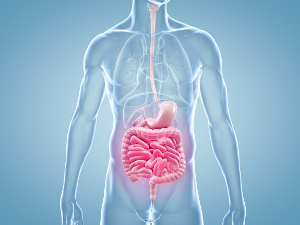 For decades, glucosamine has been used to prevent and treat osteoarthritis. According to a new study that is published in Nutrients, glucosamine supplements may also improve your digestion by counteracting abdominal bloating, constipation, and lumpy stools. It even looks as if glucosamine has other health benefits.
For decades, glucosamine has been used to prevent and treat osteoarthritis. According to a new study that is published in Nutrients, glucosamine supplements may also improve your digestion by counteracting abdominal bloating, constipation, and lumpy stools. It even looks as if glucosamine has other health benefits.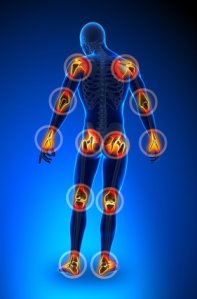 Osteoarthritis is a widespread disease that eventually affects the majority of us. The symptoms often feel worse during the wintertime. A European group of experts now recommends glucosamine sulfate as first-line treatment, before painkillers, as glucosamine sulfate is the only remedy that can prevent further progression of the disease and therefore effectively reduces the pain.
Osteoarthritis is a widespread disease that eventually affects the majority of us. The symptoms often feel worse during the wintertime. A European group of experts now recommends glucosamine sulfate as first-line treatment, before painkillers, as glucosamine sulfate is the only remedy that can prevent further progression of the disease and therefore effectively reduces the pain.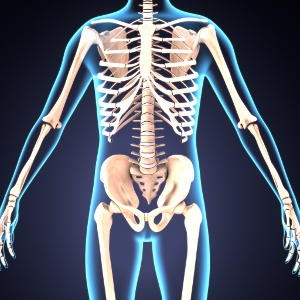 Vitamin C is important for bone density. A deficiency of the nutrient actually increases the risk of osteoporosis. Patients suffering from Crohn’s disease, ulcerative colitis, and other inflammatory bowel diseases often lack vitamin C and that adds even more to their risk. It is also a problem when normal, healthy people eat a vitamin C-deficient diet, and it becomes even more critical when people with chronic bowel diseases eat a diet with too little vitamin C. Vitamin C has a number of other functions in the body that are of importance to the immune system and the gut flora. Also, our genes for utilizing vitamin C play a role, according to a new study from Poznan University and Human Genetics Polish Academy of Sciences in Poland.
Vitamin C is important for bone density. A deficiency of the nutrient actually increases the risk of osteoporosis. Patients suffering from Crohn’s disease, ulcerative colitis, and other inflammatory bowel diseases often lack vitamin C and that adds even more to their risk. It is also a problem when normal, healthy people eat a vitamin C-deficient diet, and it becomes even more critical when people with chronic bowel diseases eat a diet with too little vitamin C. Vitamin C has a number of other functions in the body that are of importance to the immune system and the gut flora. Also, our genes for utilizing vitamin C play a role, according to a new study from Poznan University and Human Genetics Polish Academy of Sciences in Poland.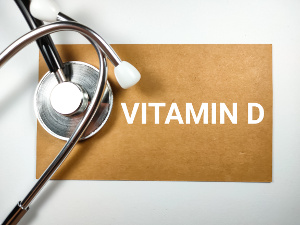 Vitamin D’s role in maintaining proper health is well documented. Still, many older people lack the nutrient and that increases their risk of bone fractures, blood poisoning, and disease complications that can eventually lead to hospitalization. Also, they risk prolonged hospitalization according to a new Irish study published in the scientific journal Nutrients. The scientists recommend giving vitamin D supplements to seniors to increase their blood levels of vitamin D. Other studies even suggest that this can protect against COVID-19, as low vitamin D status is associated with an increased risk of being hospitalized with the disease.
Vitamin D’s role in maintaining proper health is well documented. Still, many older people lack the nutrient and that increases their risk of bone fractures, blood poisoning, and disease complications that can eventually lead to hospitalization. Also, they risk prolonged hospitalization according to a new Irish study published in the scientific journal Nutrients. The scientists recommend giving vitamin D supplements to seniors to increase their blood levels of vitamin D. Other studies even suggest that this can protect against COVID-19, as low vitamin D status is associated with an increased risk of being hospitalized with the disease. Vitamin K occurs in different forms and has a variety of biological functions. A growing number of older people want to be able to manage on their own for as long as possible, which is why a team of scientists from Tufts University, USA, has taken a closer look at the risk factors that are known to impair mobility. The researchers discovered that lack of vitamin K is a serious problem. Other studies suggest that vitamin K deficiencies are quite widespread because older people tend to change their diet habits and use cholesterol-lowering medicine.
Vitamin K occurs in different forms and has a variety of biological functions. A growing number of older people want to be able to manage on their own for as long as possible, which is why a team of scientists from Tufts University, USA, has taken a closer look at the risk factors that are known to impair mobility. The researchers discovered that lack of vitamin K is a serious problem. Other studies suggest that vitamin K deficiencies are quite widespread because older people tend to change their diet habits and use cholesterol-lowering medicine.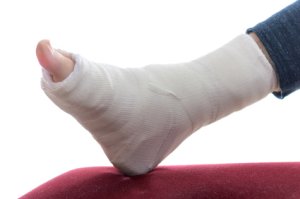 Lack of magnesium makes your bones weak. However, according to a study published in the European Journal of Epidemiology, if you increase your magnesium intake from food or supplements, you can prevent bone fractures, which is a common problem among middle-aged and old people. Although calcium and vitamin D are normally touted as being important for strong bones, it is equally important to get enough magnesium and to generally be aware of factors such as diet, medicine consumption, and lifestyle, all of which can deplete levels of this essential mineral.
Lack of magnesium makes your bones weak. However, according to a study published in the European Journal of Epidemiology, if you increase your magnesium intake from food or supplements, you can prevent bone fractures, which is a common problem among middle-aged and old people. Although calcium and vitamin D are normally touted as being important for strong bones, it is equally important to get enough magnesium and to generally be aware of factors such as diet, medicine consumption, and lifestyle, all of which can deplete levels of this essential mineral.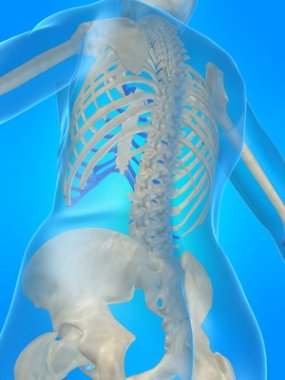 Vitamin D deficiencies are very common. They increase children's risk of developing weak bones, but they also make adults more prone to osteoporosis.
Vitamin D deficiencies are very common. They increase children's risk of developing weak bones, but they also make adults more prone to osteoporosis.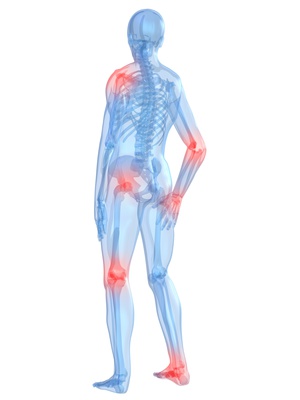 Besides causing pain in joints, osteoarthritis may lead to neck pain, headaches, back pain, tennis elbow, and other symptoms, many of which we normally wouldn't associate with osteoarthritis. It is therefore vital to address the underlying cause. An increasing number of studies show that glucosamine can halt the progression of osteoarthritis and, subsequently, slam the brakes on the accompanying pain. It is, however, important to choose glucosamine in drug form with the type of glucosamine called glucosamine sulfate in order to obtain the desired effect.
Besides causing pain in joints, osteoarthritis may lead to neck pain, headaches, back pain, tennis elbow, and other symptoms, many of which we normally wouldn't associate with osteoarthritis. It is therefore vital to address the underlying cause. An increasing number of studies show that glucosamine can halt the progression of osteoarthritis and, subsequently, slam the brakes on the accompanying pain. It is, however, important to choose glucosamine in drug form with the type of glucosamine called glucosamine sulfate in order to obtain the desired effect.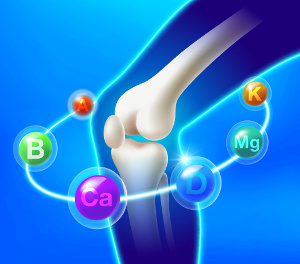
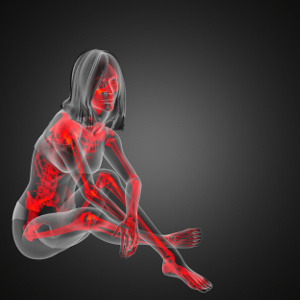 Calcium and vitamin D normally get all the attention when it comes to bone health. However, magnesium also plays a crucial, but often overlooked, role. This was demonstrated in a large population study that is published in Frontiers in Nutrition. The study links lower dietary magnesium to a greater risk of developing osteoporosis, especially for women aged 55 years and older. Osteoporosis normally takes many years to develop so it is vital to get plenty of magnesium from the diet or from supplements. Also, beware that excessive calcium intake, antacids, and diuretics block the body’s ability to absorb and utilize magnesium.
Calcium and vitamin D normally get all the attention when it comes to bone health. However, magnesium also plays a crucial, but often overlooked, role. This was demonstrated in a large population study that is published in Frontiers in Nutrition. The study links lower dietary magnesium to a greater risk of developing osteoporosis, especially for women aged 55 years and older. Osteoporosis normally takes many years to develop so it is vital to get plenty of magnesium from the diet or from supplements. Also, beware that excessive calcium intake, antacids, and diuretics block the body’s ability to absorb and utilize magnesium.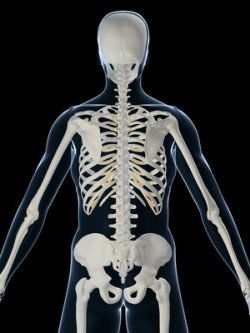 Fragile bones, also known as osteoporosis, is an insidious scourge. Science has its eyes on calcium and vitamin D, but osteoporosis may also be a result of getting too little vitamin K2 and magnesium, both of which are nutrients that must be properly balanced with calcium. If not, calcium may do more harm than good. Carbonated beverages, stimulants, and medicine (including statins) may also interfere with the bone-building processes. Therefore, strong bones require a lot more than calcium, and it is also important to remember daily, bone-challenging exercise.
Fragile bones, also known as osteoporosis, is an insidious scourge. Science has its eyes on calcium and vitamin D, but osteoporosis may also be a result of getting too little vitamin K2 and magnesium, both of which are nutrients that must be properly balanced with calcium. If not, calcium may do more harm than good. Carbonated beverages, stimulants, and medicine (including statins) may also interfere with the bone-building processes. Therefore, strong bones require a lot more than calcium, and it is also important to remember daily, bone-challenging exercise.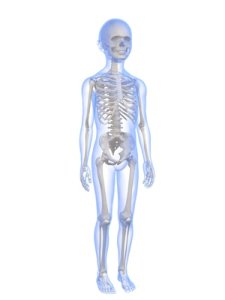 We consume far too much sugar from candy, soft beverages or in the form of concealed sugar in our food. This impairs the body’s uptake and utilization of calcium and magnesium. Sugar can skew the body’s mineral balance, thereby setting the stage for osteoporosis and an increased fracture risk caused by minor strains. Children and youngsters are particularly prone to bone weakening and osteoporosis from an early age, which is why there is good reason to lower the threshold level for sugar intake.
We consume far too much sugar from candy, soft beverages or in the form of concealed sugar in our food. This impairs the body’s uptake and utilization of calcium and magnesium. Sugar can skew the body’s mineral balance, thereby setting the stage for osteoporosis and an increased fracture risk caused by minor strains. Children and youngsters are particularly prone to bone weakening and osteoporosis from an early age, which is why there is good reason to lower the threshold level for sugar intake.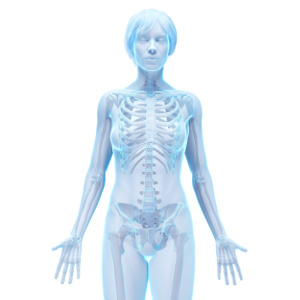
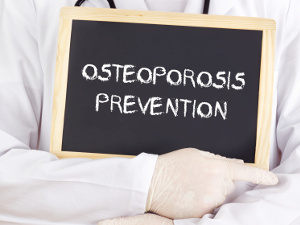 Vitamin D is important for cellular calcium uptake, bone health, and a number of other functions. There is also a direct link between the widespread vitamin D deficiency problem and brittle bones and osteoporosis among post-menopausal women, according to a large Chinese study that is published in Frontiers in Nutrition. It is important to include magnesium and vitamin K2, as they also contribute to bone health.
Vitamin D is important for cellular calcium uptake, bone health, and a number of other functions. There is also a direct link between the widespread vitamin D deficiency problem and brittle bones and osteoporosis among post-menopausal women, according to a large Chinese study that is published in Frontiers in Nutrition. It is important to include magnesium and vitamin K2, as they also contribute to bone health.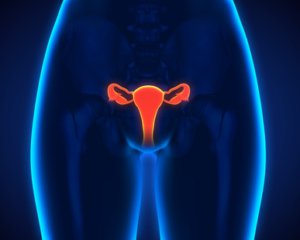 According to a large American study, a high dietary intake of vitamin D and calcium is associated with a lower risk of early-onset menopause, where the menstrual periods cease before a woman reaches 45 years of age. Premature menopause affects around 10 percent of women, and the condition increases the risk of impaired fertility, osteoporosis, cardiovascular disease, and earlier cognitive impairment. The prevention of these diseases is also a matter of getting enough sunshine, magnesium, and omega-3.
According to a large American study, a high dietary intake of vitamin D and calcium is associated with a lower risk of early-onset menopause, where the menstrual periods cease before a woman reaches 45 years of age. Premature menopause affects around 10 percent of women, and the condition increases the risk of impaired fertility, osteoporosis, cardiovascular disease, and earlier cognitive impairment. The prevention of these diseases is also a matter of getting enough sunshine, magnesium, and omega-3. Hip fractures are particularly common among older people and are often associated with a number of serious complications. However, seniors that are not vitamin D-deficient may have better chances of walking again after their surgery, according to a new study that is published in the American Journal of Clinical Nutrition. Earlier Danish research even shows that having sufficient amounts of vitamin D in your blood lowers the risk of dying of serious complications after sustaining a fractured hip. Therefore, the scientists recommend that all older people take a high-dosed vitamin D supplement daily and that they have their vitamin D levels measured when they are admitted in the hospital.
Hip fractures are particularly common among older people and are often associated with a number of serious complications. However, seniors that are not vitamin D-deficient may have better chances of walking again after their surgery, according to a new study that is published in the American Journal of Clinical Nutrition. Earlier Danish research even shows that having sufficient amounts of vitamin D in your blood lowers the risk of dying of serious complications after sustaining a fractured hip. Therefore, the scientists recommend that all older people take a high-dosed vitamin D supplement daily and that they have their vitamin D levels measured when they are admitted in the hospital.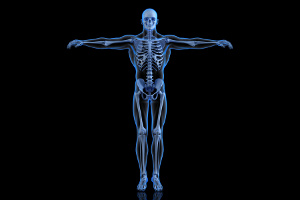 Bone fractures can be fatal, especially in old age where hip fractures typically result in hospitalization and early death. According to a study from Edith Cowan University in Australia, increased intake of vitamin K1 from foods like spinach, cabbage, and other vegetables lowers the risk of bone fractures later in life. Vitamin K1’s positive effect on bone health is linked to the fact that K1 is converted into vitamin K2 in the intestine, and vitamin K2-dependent proteins clear calcium from the bloodstream and embed the mineral in bone tissue.
Bone fractures can be fatal, especially in old age where hip fractures typically result in hospitalization and early death. According to a study from Edith Cowan University in Australia, increased intake of vitamin K1 from foods like spinach, cabbage, and other vegetables lowers the risk of bone fractures later in life. Vitamin K1’s positive effect on bone health is linked to the fact that K1 is converted into vitamin K2 in the intestine, and vitamin K2-dependent proteins clear calcium from the bloodstream and embed the mineral in bone tissue.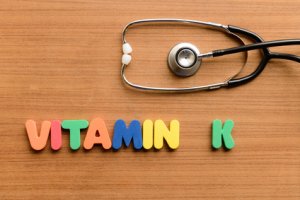 Vitamin K2 clears calcium from the bloodstream and embeds it in bone tissue. Therefore, vitamin K2 is of vital importance to bone building and the prevention of atherosclerosis. Medical News Bulletin has placed even more focus on vitamin K2’s role in maintaining strong bones and reducing the risk of a fracture. The question is, how much vitamin K2 do we really need for optimal bone health, and why is it important to know the difference between vitamin K1 and vitamin K2?
Vitamin K2 clears calcium from the bloodstream and embeds it in bone tissue. Therefore, vitamin K2 is of vital importance to bone building and the prevention of atherosclerosis. Medical News Bulletin has placed even more focus on vitamin K2’s role in maintaining strong bones and reducing the risk of a fracture. The question is, how much vitamin K2 do we really need for optimal bone health, and why is it important to know the difference between vitamin K1 and vitamin K2?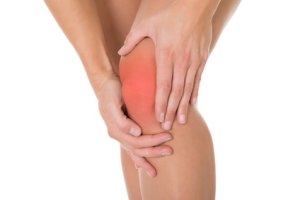 According to researchers, women with weak thighs and hamstrings have an increased risk of developing knee osteoarthritis. Of course, leg muscle exercise is important for preventing this condition, but adequate nutrient intake and maintenance of the right body weight also contribute. For those who are already affected by knee osteoarthritis, glucosamine supplements can be useful. Make sure to choose glucosamine sulfate and to stick with glucosamine supplements that are listed as medical drugs if you want to be sure to obtain the desired effect.
According to researchers, women with weak thighs and hamstrings have an increased risk of developing knee osteoarthritis. Of course, leg muscle exercise is important for preventing this condition, but adequate nutrient intake and maintenance of the right body weight also contribute. For those who are already affected by knee osteoarthritis, glucosamine supplements can be useful. Make sure to choose glucosamine sulfate and to stick with glucosamine supplements that are listed as medical drugs if you want to be sure to obtain the desired effect. "After about one week of taking the Q10 supplement I could feel a huge difference," says 23-year old Alan Piccini, who has been suffering from extreme fatigue and muscle aches ever since he was a child.
"After about one week of taking the Q10 supplement I could feel a huge difference," says 23-year old Alan Piccini, who has been suffering from extreme fatigue and muscle aches ever since he was a child. “Taking capsules with co-enzyme Q10 has freed me of the severe side effects of my cholesterol lowering medicine,” Mrs Franken explains.
“Taking capsules with co-enzyme Q10 has freed me of the severe side effects of my cholesterol lowering medicine,” Mrs Franken explains.